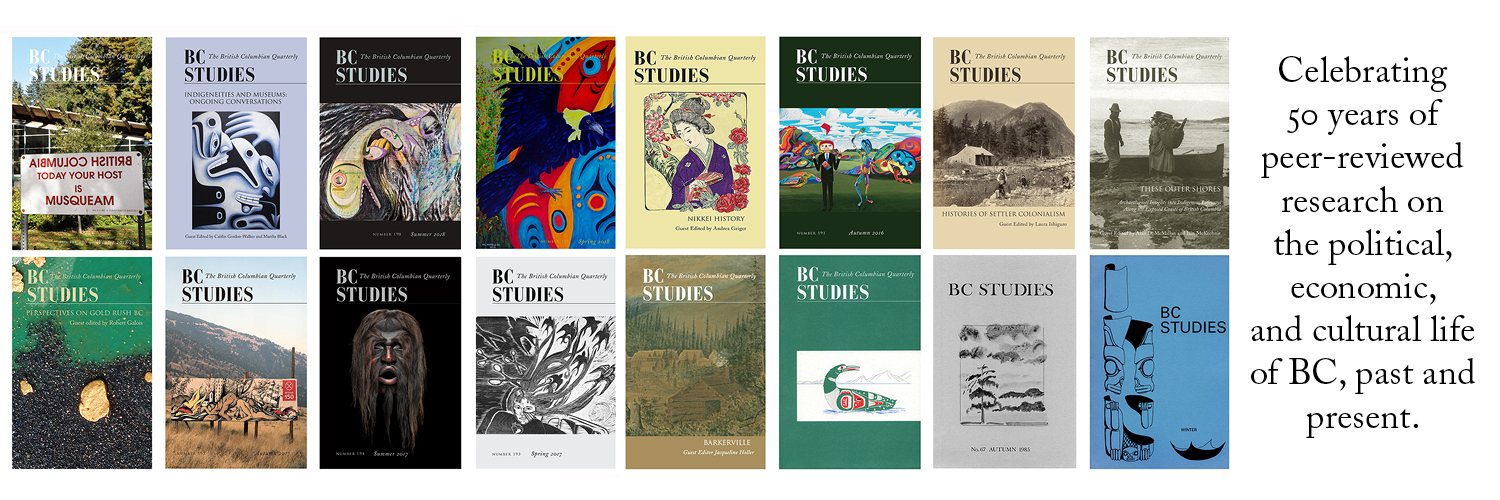Home or Global Treasure? Understanding Relationships between the Heiltsuk Nation and Environmentalists
DOI:
https://doi.org/10.14288/bcs.v0i171.1913Keywords:
Great Bear Rainforest, Heiltsuk, environment, aboriginal culture, economic developmentAbstract
Alliances between Indigenous peoples and environmental groups have grown in importance as First Nations in Canada challenge government and corporate interests that infringe upon their sovereignty and well-being.The West Coast of British Columbia has been an active site for transactions between First Nations and environmental groups since the early 1990s (e.g., Braun 2002; Davis 2009; Smith and Sterritt 2010), and these relationships exhibit a recurrent pattern of challenges.This article discusses the Heiltsuk Nation’s experiences and perceptions of alliance building with environmental groups.The tensions that arise in alliance building are assessed by presenting a number of examples that indicate that the practices of environmental groups run the risk of reproducing colonial relations.At the same time, I demonstrate that, when a First Nation’s priorities of self-determination and self-reliance are recognized in the relationship, such alliances can be mutually beneficial.



